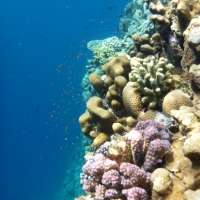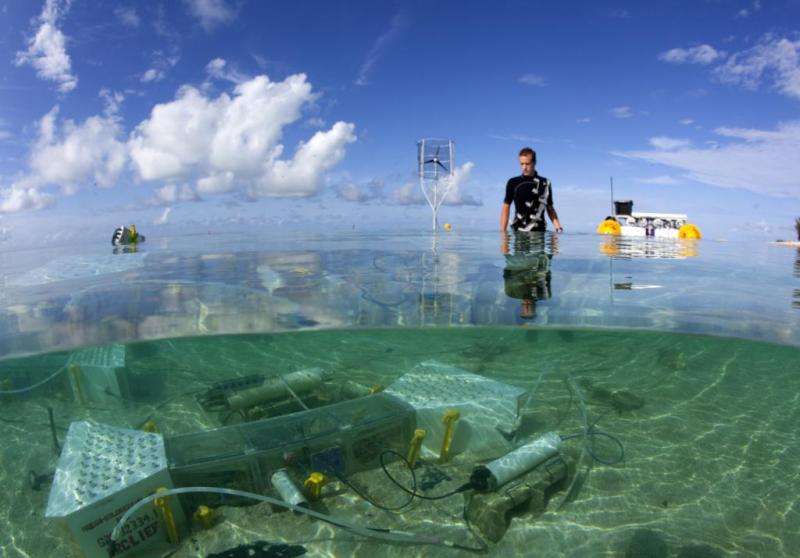Self-regulating coral protect themselves against ocean acidification

A new study carried out by researchers from The University of Western Australia and the University of Queensland has found that the Porites cylindrica variety of coral have an in-built mechanism that protects them in environments where there is a high fluctuation in ocean pH.
The researchers discovered that Porites cylindrica in the Heron Island Lagoon and the Great Barrier Reef have a reservoir of calcifying fluid which maintains a constant pH level, regardless of the pH level in the surrounding waters.
Ocean acidification is caused by rising carbon dioxideand is one of the greatest long-term challenges facing the survival of reefs and coral.
Lead author of the study from UWA's ARC Centre of Excellence for Coral Reef Studies Lucy Georgiou said the team found that the reservoir of calcifying fluid allowed Porites cylindrica to continue to grow, even under relatively low pH conditions.
"The regulatory mechanism allows the coral to grow at a relatively constant rate, suggesting it may be more resilient to the effects of ocean acidification than previously thought," she said.

The researchers were able to study the colony in its natural environment using the innovative free ocean carbon enrichment technique to simulate the impact of ocean acidification.
"It was really important to do this, as many reef systems are highly complex environments," Ms Georgiou said.
While the findings are positive, it is not yet known if the adaption is species-specific and limited to colonies where there is a high fluctuation of ocean pH levels.
"We think it is most likely only typical to coral from reefs such as Heron Island Lagoon where temperature and pH fluctuations vary greatly," Ms Georgiou said.
"The next step in this research is to find out if Porites cylindrica colonies from more stable environments also have the ability to adapt and 'hold up' to the threats of ocean acidification.
"We also need to explore whether rising sea temperatures impacts their ability to maintain a constant internal pH level."
The research paper was published today in the journal Proceedings of the National Academy of Sciences.
More information: "pH homeostasis during coral calcification in a free ocean CO2 enrichment (FOCE) experiment, Heron Island reef flat, Great Barrier Reef." PNAS 2015 ; published ahead of print October 5, 2015, DOI: 10.1073/pnas.1505586112
Journal information: Proceedings of the National Academy of Sciences
Provided by University of Western Australia




















